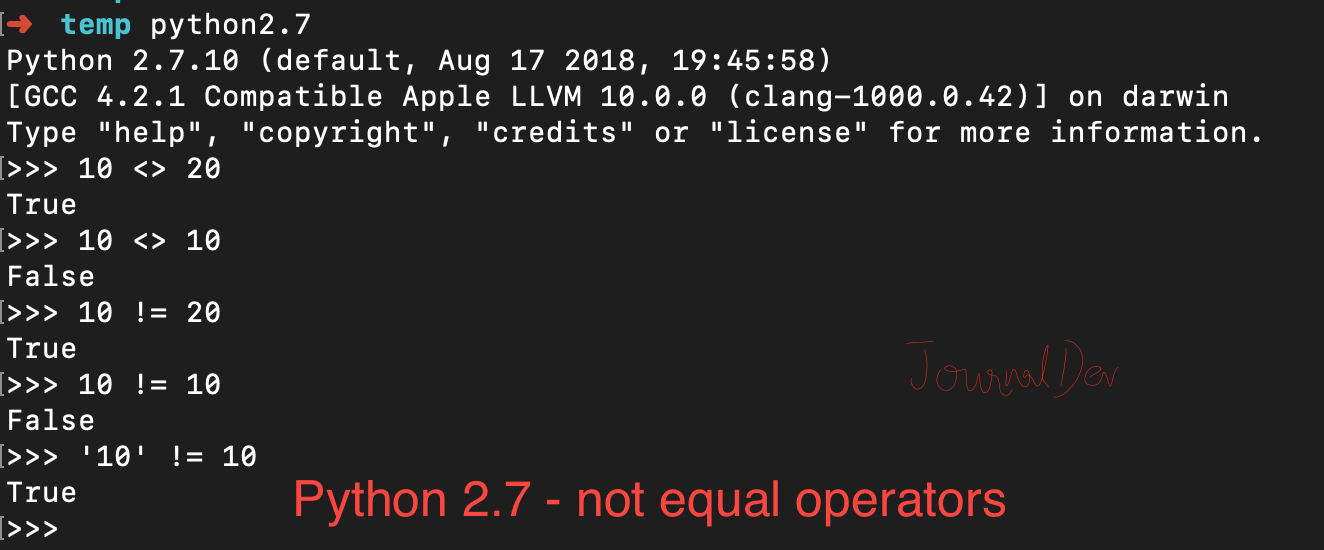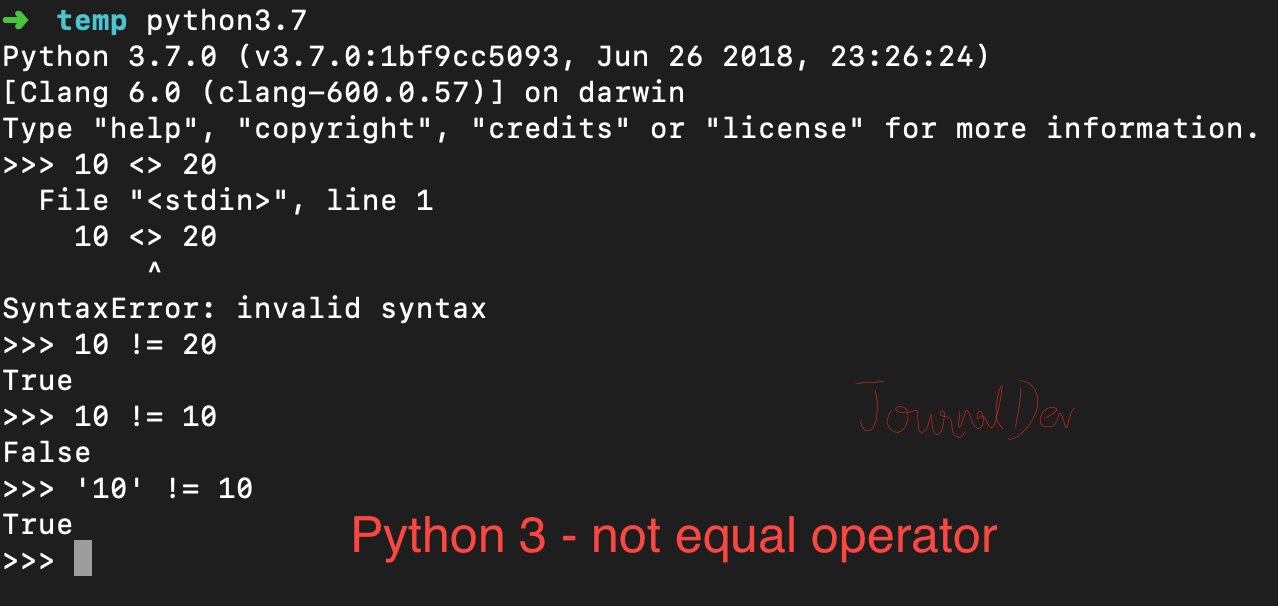Python 不等式运算符返回True,如果两个变量具有相同类型和不同的值,如果值相同,则返回False。
Python不等同操作员
操作员
Python 2 例子
让我们来看看 Python 2.7 中的一些非等式运算符的例子。
1$ python2.7
2Python 2.7.10 (default, Aug 17 2018, 19:45:58)
3[GCC 4.2.1 Compatible Apple LLVM 10.0.0 (clang-1000.0.42)] on darwin
4Type "help", "copyright", "credits" or "license" for more information.
5>>> 10 <> 20
6True
7>>> 10 <> 10
8False
9>>> 10 != 20
10True
11>>> 10 != 10
12False
13>>> '10' != 10
14True
15>>>

Python 3 例子
以下是使用Python 3控制台的一些例子。
1$ python3.7
2Python 3.7.0 (v3.7.0:1bf9cc5093, Jun 26 2018, 23:26:24)
3[Clang 6.0 (clang-600.0.57)] on darwin
4Type "help", "copyright", "credits" or "license" for more information.
5>>> 10 <> 20
6 File "<stdin>", line 1
7 10 <> 20
8 ^
9SyntaxError: invalid syntax
10>>> 10 != 20
11True
12>>> 10 != 10
13False
14>>> '10' != 10
15True
16>>>
 We can use Python not equal operator with f-strings too if you are using Python 3.6 or higher version.
We can use Python not equal operator with f-strings too if you are using Python 3.6 or higher version.
1x = 10
2y = 10
3z = 20
4
5print(f'x is not equal to y = {x!=y}')
6
7flag = x != z
8print(f'x is not equal to z = {flag}')
9
10# python is strongly typed language
11s = '10'
12print(f'x is not equal to s = {x!=s}')
输出:
1x is not equal to y = False
2x is not equal to z = True
3x is not equal to s = True
Python 不等于定制对象
当我们使用不平等的操作员时,它会称之为(自我,其他)函数,所以我们可以定义对象的自定义实现,并改变自然的输出。 假设我们有数据类的字段 - id 和记录。 当我们使用不平等的操作员时,我们只想将其与记录值进行比较。 我们可以通过实施我们自己的()函数来实现这一点。
1class Data:
2 id = 0
3 record = ''
4
5 def __init__(self, i, s):
6 self.id = i
7 self.record = s
8
9 def __ne__(self, other):
10 # return true if different types
11 if type(other) != type(self):
12 return True
13 if self.record != other.record:
14 return True
15 else:
16 return False
17
18d1 = Data(1, 'Java')
19d2 = Data(2, 'Java')
20d3 = Data(3, 'Python')
21
22print(d1 != d2)
23print(d2 != d3)
输出:
1False
2True
请注意,d1和d2的记录值是相同的,但id是不同的。如果我们删除()函数,那么输出将是这样的:
1True
2True
您可以从我们的 GitHub 存储库中查阅完整的 Python 脚本和更多 Python 示例。